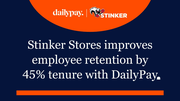Blog
Price is nice, but consumers want exceptional customer experience
Suresh Menon, senior vice president and general manager, Master Data Management, Informatica, explains how customer experience plays an ever-bigger role in purchase decisions and why it's time to master customer data.

June 10, 2019
By Suresh Menon, SVP and GM, Master Data Management, Informatica
Consider this scenario: A shopper is researching laptops online. She selects a top brand and model and, with a few more clicks, she can have it delivered the next day at the cheapest price.
Easy choice, right?
Not necessarily.
According to an Accenture study, 61 percent of consumers stopped doing business with at least one company because of a poor customer experience. And 48 percent expect specialized treatment for being a good customer.
This means today's customer experience plays an ever-bigger role in purchase decisions, and that consumers aren't buying based on price and selection.
Rising customer expectations means customer experience management (CXM) is core to the success of a business. It's critical to deliver intelligent, real-time customer experience across every channel. Done right, CXM can generate new revenue and deepen customer loyalty and satisfaction.
The challenge is CXM isn't easy to get right. A core problem is that customer data is often scattered across many disparate applications, which makes it difficult to obtain a holistic, accurate, and real-time view of each customer. But when companies have mastered their data, they can make more intelligent decisions, faster, and deliver personalized customer experiences that achieve the CXM holy grail.
Why a single, trusted 360 view of the customer matters
Companies have massive volumes of transaction and interaction data across multiple applications, from marketing automation to CRM, order management, billing customer support, and others. They also manage data from social media, third-party demographics, and Internet of Things devices, adding complexity to traditional information systems.
Compounding this problem, data is in constant flux as customers change addresses, change jobs, get married, and so forth. Quality of customer data progressively degrades over months and years, hindering a seamless customer experience.
Some organizations can't answer simple questions such as who their best customers are, what they've purchased, and which channels they prefer. Marketers, sales reps, and service personnel might have piecemeal pictures of a customer, but not a single source of truth because the data isn't complete, accurate, consistent, and up to date.
The result: most companies lack the single, trusted, 360-degree customer view they need for successful CXM.
According to Gartner, "Organizations struggle to apply relevant customer information and insight to delivering business benefits such as customer acquisition, cross-selling/upselling, and retention. At worst, poor use of customer data can result in lost sales, loss of customer advocacy, and customer defection to competitors."
Putting the data in data-driven CXM
Leading companies recognize that data-driven CXM with relevant, complete, and trusted data enables the right customer engagement across channels. Personalizing the customer experience was cited as the number one objective of marketing and sales professionals in a survey by Ascend2 and Dun & Bradstreet.
Yet companies face barriers such as improving data quality and integrating data, also identified in the survey as the top two obstacles to data-driven marketing success. The old workaround of cobbling together data and making guesswork decisions isn't sustainable. Not when customers are more discriminating, and the competition is just a click away.
That's why innovative companies like Hyatt Hotels are turning to intelligent data management, the not-so-secret weapon for delivering exceptional customer experience.
Hyatt uses data intelligently to support its focus on exceptional guest experiences. With more than 750 properties in 54 countries, Hyatt captures guest behaviors and preferences across channels; uses cleansed, consolidated data for personalized interactions; and shares information across its network of hotels.
A seemingly small gesture like ensuring a guest's pillow preference is consistent from Singapore to Cincinnati pays big dividends in repeat business and customer advocacy.
Hyatt has achieved remarkable results based on intelligent processes and a robust platform for data integration, data quality, and master data management. Upsell revenue from frequent guests leapt nearly 20 percent, while Hyatt saw big improvements in cross-sell and guest engagement metrics. The company is achieving its objectives of revenue, differentiation, and customer loyalty by putting data at the center of its efforts.
"Data is what makes it possible for Hyatt colleagues to provide a personalized experience that guests do not forget," said SriHari Thotapalli, director, analytics and BI, Hyatt Hotels. "Hyatt can relate the data together and give colleagues the means to act on it across all Hyatt hotels worldwide."
The critical role of intelligent data and the shift in consumer buying sentiment from price and selection to customer experience is happening across the board. Whether shopping for a laptop, choosing car insurance, selecting a healthcare plan, or booking a hotel room, customers expect the companies they do business with to anticipate their needs and engage them with personalized interactions.
 ChatGPT
ChatGPT Grok
Grok Perplexity
Perplexity Claude
Claude




